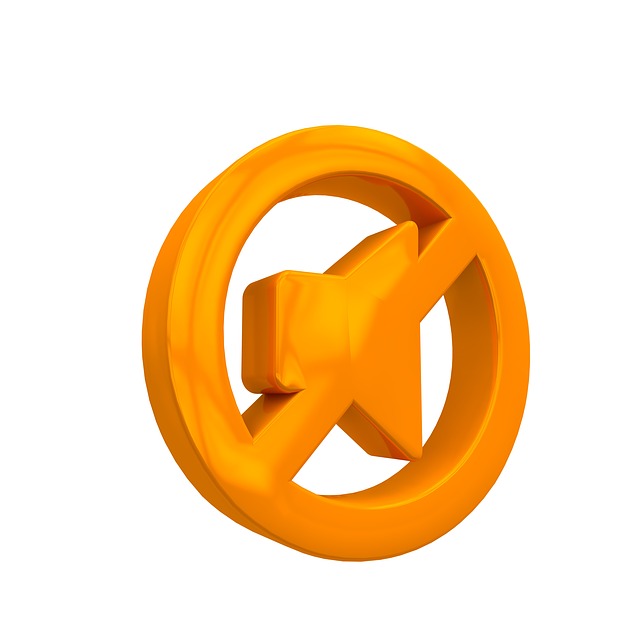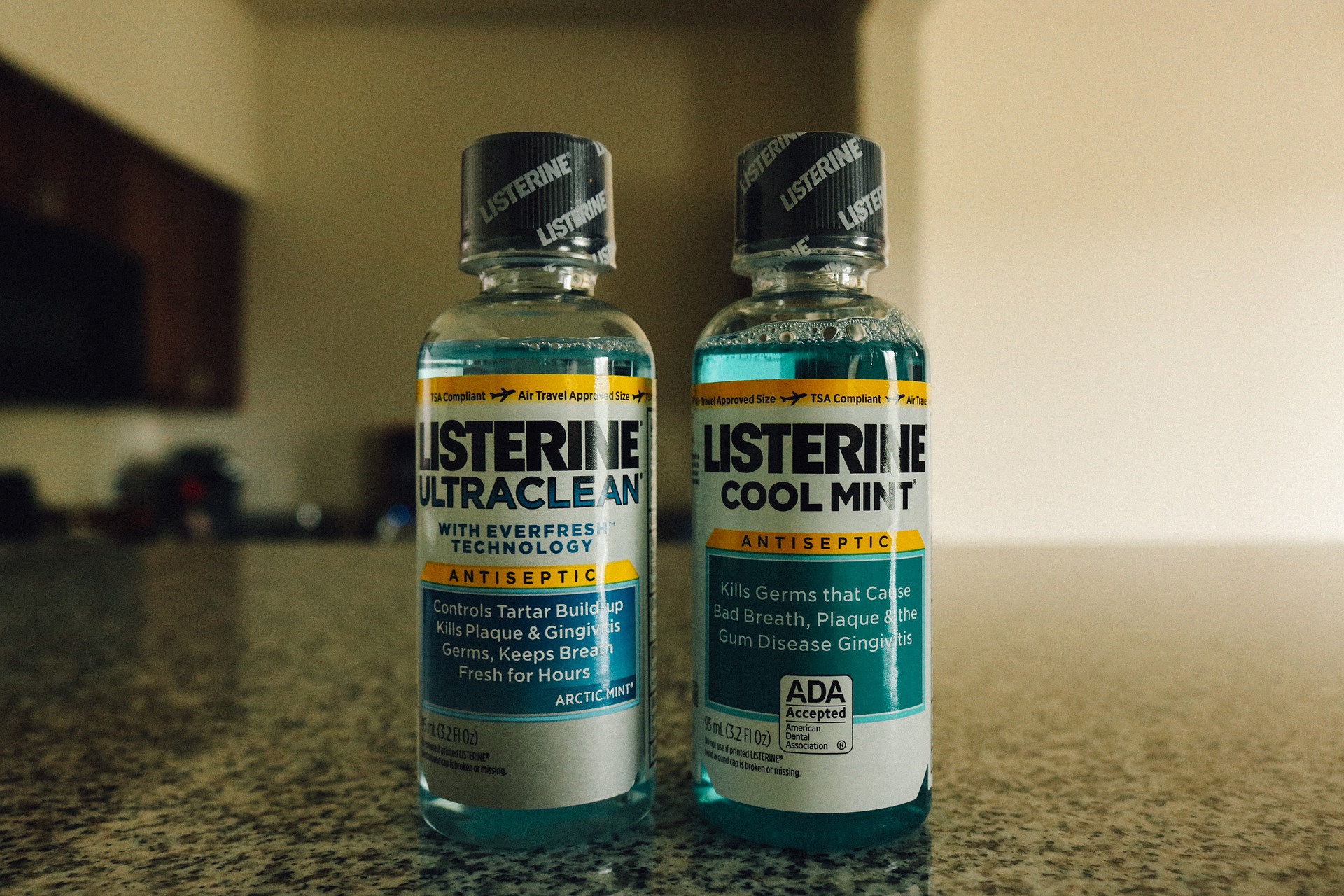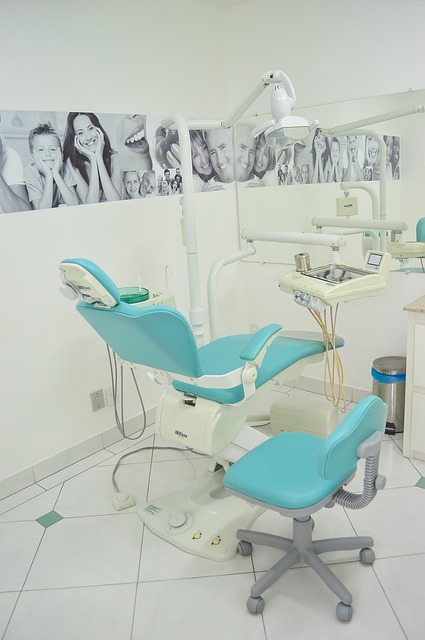Periodontal (gum) disease is a progressive inflammation of the gum tissue. It is most frequently caused by bacterial infection. Left untreated, gum disease can have serious consequences for your oral and overall health. However, one of the biggest challenges for early detection and treatment of gum disease is its silence. Gum disease can often begin and progress with few or no symptoms until reaching an advanced stage.
Gum disease is caused when the bacteria found in plaque builds up between the teeth and gums. As the bacteria grow, the gums can become inflamed and pull away from the teeth. When gum disease is not treated promptly, it can worsen, leading to increased gum recession, infection, and bone loss. In addition, periodontal disease is the leading cause of tooth loss in adults.
Gum disease also impacts other aspects of your overall health. Research has found links between gum disease and diabetes, heart disease, stroke, and other serious inflammatory illnesses. To help prevent gum disease, ensure you are practicing strong oral hygiene habits, including brushing, flossing, use of mouthwash, and regular dental examinations. Be aware of your risk factors for developing gum disease, such as age, tobacco use, genetics, stress, medications, grinding, obesity, or other inflammatory diseases, among others. Consider having an annual periodontal evaluation with our Family First dentist.
While symptoms may not appear until later stages of the disease, it is important to watch for the warning signs of gum disease. Some of these include:
- Red, swollen, or tender gums
- Mouth pain
- Bleeding gums caused by brushing, flossing, or eating hard foods
- Loose or separating teeth
- Pus between gums or teeth
- Mouth sores
- Chronic bad breath
- Gums receding or pulling away from teeth
- Changes in your bite or the fit of dentures
Gum disease can start silently, but may cause great damage if left untreated. Once gum disease has started, it can be effectively treated, but not fully cured. Protect your oral and overall health with preventive dental care and regular periodontal screenings. For more information about gum disease or to schedule your periodontal screening, contact our Family 1st dental office.
The Truth Behind 5 Popular Dental Misconceptions | Family First Dental
Clearing up misconceptions about oral health can help improve personal oral hygiene efforts for a beautiful and healthier smile. If you keep up with your oral hygiene regimen, dental visits are significantly easier and dental care is more manageable.
Misconception #1 – My teeth are fine if I have no pain
Tooth decay (cavities) usually doesn’t cause pain until they become very severe. Once it gets to this stage, the amount of decay could lead to more invasive and costly treatments. Some of the most dangerous oral disorders, such as oral cancer and gum disease, typically don’t cause pain at all. It is important to keep up with scheduled dental appointments. Our Family 1st dentist in can diagnose problems even at its earliest stages when there is no pain.
Misconception #2 – Cavities are only caused by sweets
When you eat sweets, the bacteria in your mouth start consuming it and produce acid. This acid dissolves the enamel of the tooth, which results in tooth decay or cavities. However, this process happens when you eat anything that is a starch or carbohydrate. Food and snacks, such as crackers, bread, potato chips, fruit, peanut butter and pasta, have the same effect on your teeth.
Misconception #3 – If my gums bleed, I should stop flossing
Bleeding gums are often the first sign of gum disease. This happens when bacterial infections inflame your gums due to a lack of efficient cleaning. With regular brushing and flossing, gums will be much healthier and should rarely bleed. However, gum inflammation can occur despite best oral hygiene habits. In such instances, you should see improvement if you rinse with warm salt water and continue to brush and floss.
Misconception #4 – Whiter teeth are healthier teeth
Healthy teeth come in a wide range of natural shades. Whiter teeth cannot show if there is an infection or cavity between the teeth. Although pure white teeth do not equate to healthier teeth, they should still be naturally on the whiter side.
Misconception #5 – Children are more prone to tooth decay
Tooth decay (cavities) can develop at any age. People assume children have poor brushing habits and are more prone to tooth decay. Cavities form when bacteria cause a loss or weakening in tooth enamel and eventually decay forms a hole in the tooth. This is usually seen in people with poor brushing and flossing habits, regardless of age. Excellent oral health promotes overall good health and is definitely not a misconception. It is important to practice good oral hygiene habits. If you have any questions regarding your dental health, please contact Family First Dental.
Don’t Rush to Brush | Family First Dental
Are you a diligent brusher who grabs the toothbrush as soon as you finish each snack or meal? While there are significant benefits to regular brushing, hurrying your hygiene might be doing more harm than good. The key lies in understanding the effects different types of food and drinks have on your teeth.
The Dangers of Acidic Foods
Food and drinks that contain acids are particularly harmful to your teeth. Acid can wear away at the enamel on your teeth. As your enamel weakens, your risk for developing decay increases.
What Foods Should I Look Out For?
Fruits such as oranges, pineapples, and grapefruit contain problematic acids that can cause damage to your enamel. Diet sodas and wines can be just as damaging, as can fruit juices such as orange juice. Tomato products and foods such as pizza, salsa, soups, and sauces also contain acids.
But Brushing My Teeth Helps, Right?
Not necessarily. The acids in these foods weaken the enamel on your teeth. After eating or drinking a highly acidic product, your teeth are in a particularly vulnerable state. Enamel protects your teeth, and it is the strongest mineral in your entire body. However, the layers of your teeth beneath the enamel are not as strong and resilient. If you brush your teeth immediately after consuming something acidic, you can drive the acid further into your teeth. This speeds up the process of breaking down your enamel.
When Should I Brush?
Wait about 20 minutes after consuming acidic foods or drinks before brushing your teeth. While waiting, your mouth will produce saliva which helps to neutralize acids and wash away bacteria. Drinking water, rinsing your mouth, or chewing sugarless gum can help neutralize acids more quickly.
Should I Always Wait to Brush My Teeth?
While you should not rush to brush after eating acidic foods, you should not wait long after eating foods that are extremely sticky and sugary. If you are eating candy, taffy, or another sticky treat, waiting is not the best option. The sooner you can clean these sugary substances off your teeth, the better.
Should I Just Stop Eating Acidic Foods?
Acidic foods such as fruits contain vitamins and nutrients that are an essential component to your diet. While you don’t have to avoid these foods altogether, you should be mindful of how they impact your teeth. Maintain a daily oral hygiene schedule that includes regular flossing and at least two rounds of brushing for two minutes.
For more dental health tips, or to schedule your next visit to our Iowa dentist, please contact Family First Dental.
Are You Using the Right Mouthwash? | Nebraska Best Dentists
While it should never be used as a replacement for brushing and flossing, mouthwash can be a helpful addition to your at-home oral healthcare routine. Here’s what you need to know in order to pick the best mouthwash for your needs. For more information, or for a personalized recommendation on the best mouthwash for you, contact our team today!
Choosing the Right Mouthwash
Though there are plenty of brands and varieties of mouthwash available, most fall into one of two general categories as recognized by the ADA: cosmetic and therapeutic. Cosmetic mouthwashes treat symptoms only, such temporarily masking bad breath. Therapeutic mouthwashes aim to treat the cause of an issue. Fluoridated anti-cavity mouthwashes are designed to help strengthen the enamel of your teeth and prevent cavities. Anti-bacterial and antiseptic mouthwashes kill odor and disease-causing bacteria in your mouth, with antiseptic options typically having a higher alcohol content. We can help you better understand the difference and find the mouthwash that’s right for your particular needs.
Should I Use Mouthwash?
If you maintain a proper oral care routine at home and visit your best dentist in Nebraska at least twice yearly, you might not need to use mouthwash. However, depending on the unique needs of your teeth, it might be beneficial to talk to our dentist about working a specialized mouthwash into your routine.
Though mouthwash is not an acceptable substitute for regular brushing and flossing, it can be a helpful tool to keep your mouth fresh and clean throughout the day. Swishing mouthwash after eating can help dislodge any food that might be stuck in your teeth and mask any odor that might be lingering on your breath.
Tips for Your Mouthwash Routine
Generally, you want to use mouthwash after flossing, brushing, and rinsing your mouth. Swish the mouthwash around for 30-60 seconds and avoid rinsing, eating, or drinking for at least 30 minutes afterwards to give the mouthwash time to work.
Side Effects of Mouthwash
When used properly, there are minimal risks associated with mouthwash. Many mouthwashes contain alcohol, which can cause a burning sensation in your mouth. If the sensitivity continues long after use or increases over time, ask our dentist about different alcohol-free options. For children, it is important that you supervise their brushing routine, as swallowing mouthwash can be dangerous.
Mouthwash can be a useful tool for anyone. Whether you’re looking to fight bad breath or help protect your mouth from tooth decay or gum disease, the wide array of mouthwashes available means there’s an option for everyone. Talk to our team during your next visit to learn more about the benefits of working mouthwash into your oral care routine.
For more tips on keeping your mouth healthy or to schedule your next appointment, please contact Family First Dental today!
Chewing Gum for Your Oral Health | Dental Jobs in Nebraska
Sugary, sticky, and sweet candies can damage your teeth by increasing your risk of decay. Though gum can be considered a type of candy, chewing sugarless gum approved by the ADA can actually help protect teeth and prevent tooth decay. Here’s what you need to know about gum and your teeth.
How it Works
Our Iowa Best Dentists agrees that chewing gum helps increase the production of saliva. Chewing sugarless gum for twenty minutes following meals can help prevent tooth decay because the saliva helps wash away food and other debris from the surface of your teeth. Increased salivary flow can also neutralize acids that bacteria produce inside your mouth. Over time, acid can break down tooth enamel, leading to decay. Saliva contains calcium and phosphate, which aid in strengthening tooth enamel.
Look for the ADA Seal
The ADA Seal assures you that the gum is sugarless and has met the ADA’s criteria for safety and effectiveness. ADA-labeled products are tested to ensure they provide the benefits guaranteed by the seal. Companies must verify all relevant data with the ADA to become certified. If you are unable to brush for a short period of time, chewing gum with the ADA seal is a great option to help clean your teeth after a meal or snack.
Can I Stop Brushing if I Chew Gum?
No. Chewing gum for twenty minutes after a meal helps but is not a replacement for brushing and flossing. You should brush at least twice each day, for two full minutes. Chewing gum also does not eliminate your need for regular dental examinations. Our dentist recommends scheduling two visits/dental cleanings each year, with additional visits necessary for high-risk patients with oral health conditions.
Chewing sugarless gum has noticeable benefits for your oral health, such as increasing the production of saliva. While this can help prevent the build up of decay-causing bacteria, chewing gum should not be used as a substitute for brushing or flossing. Our dentist recommends that if you are chewing gum, be sure to choose an ADA approved brand of sugarless gum.
To schedule your next visit, please contact Family First Dental.
Understanding Periodontal Disease | Dental Jobs in Nebraska
Maintaining your gum health is vital to your overall health. When you visit our office for an examination, our trained hygienists perform a periodontal exam. In fact, during your examination, our team is quietly assessing your oral health by performing a number of checks. Here’s what you need to know about periodontal disease according to our best dentists in Iowa.
Many Names, One Illness
You may have heard periodontal disease referred to as gum disease or gingivitis. Periodontal disease is the inflammation and infection of your gums. These names are frequently used interchangeably.
Signs & Symptoms
Periodontal disease may be marked by swollen and red gums. Bleeding, especially while brushing and flossing, may also occur. Another symptom of periodontal disease is persistent bad breath. If you experience any of these symptoms regularly, please contact our office.
Periodontal Disease Can Impact Your Overall Health
Your gum health is linked to your overall health. If left untreated, periodontal disease can lead to bleeding gums, gum recession, and tooth loss. The effects of periodontal disease extend well beyond your mouth. In fact, according to the American Academy of Periodontology, the disease can increase your risk of developing heart disease, diabetes, and stroke.
While you may think of your teeth as the primary reason to visit our office for a regular examination, understand that our team is looking beyond your teeth to assess your oral health and potential impacts on your overall health. Talk to our experienced team if you experience any signs or symptoms of periodontal disease. Our team is trained to identify signs of periodontal disease. When detected early and managed properly, periodontal disease is treatable.
For more information regarding your gum health, please contact our Family First Dental office, or schedule a visit to see us.
Oral Cancer Risk Factors | Best Dentist in Nebraska
During a comprehensive dental examination, our team will look for signs of oral cancer. Early detection is key with oral cancer. If caught early, most forms of oral cancer are treatable. Our Iowa best dentists are trained and educated to identify oral cancer.
Everyone is susceptible to the disease, but some groups of people are at a higher risk level than others. Here are the top seven risk factors for oral cancer.
Age
Are you in your mid 40s? Your risk of developing oral cancer increases with age. A noticeable increase is evident in people in their 40s and older. According to the Cancer Treatment Centers of America, the majority of diagnosed cases occur around the age of 62, but the average age is declining. The recent increase in Human Papillomavirus (HPV) related cases is causing more people to be diagnosed for oral cancers between the ages of 52 and 56. As the average age for oral cancer cases decreases, it is vital that you receive regular oral cancer screenings at any age.
Gender
Men are twice as likely to develop oral cancer compared to women. Part of this difference may be related to regular intake of alcohol and tobacco. According to the American Cancer Society, the gender difference is decreasing since more women are drinking and using tobacco today than in previous generations. There has also been a trend in recent years of younger men being diagnosed with HPV-related oral cancer. Both men and women should schedule regular oral health examinations to detect oral cancer early.
Tobacco
Smoking or chewing tobacco can greatly increase your risk of developing oral cancer. Tobacco can lead to cancer of the mouth or throat. Additionally, oral tobacco products cause cancers associated with the cheeks, gums, and inner surface of the lips. Development of these cancers depend on the duration and frequency of tobacco use. Non-smokers are not immune to oral cancer, so be sure to schedule an appointment with our team for an examination.
Alcohol
Among those that are diagnosed with oral cancer, about 70% of people are characterized as heavy drinkers. According to the Centers for Disease Control and Prevention (CDC), heavy drinking is defined as having an average of two or more drinks per day for men, and one or more drinks per day for women. People who drink heavily can be more than twice as likely to develop oral cancers than people who do not drink. Oral cancer can still occur in people who have never had an alcoholic drink. Contact our team to schedule an examination.
Human Papillomavirus (HPV)
This sexually transmitted disease is associated with at least 10,000 cases of oral cancer diagnosed each year in the United States. People who have HPV-related oral cancers tend to be younger and are unlikely to smoke or drink. Typically, those diagnosed with HPV-related oral cancers are at a much lower risk of death or reoccurrence. We suggest a proactive approach by maintaining regular visits to our dental office.
Sunlight
People who work outside or with prolonged exposure to sunlight have a higher risk of developing lip cancer. It is vital to use UV protection when under the sun. Many lip balms offer UV protection. If you work outdoors frequently, schedule an additional examination with our team.
Diet
Poor nutrition can increase your risk for developing oral cancer. According to the American Dental Association, reports have shown that a link exists between diets low in fruits and vegetables and a higher risk for oral cancers. However, oral cancer can develop in healthy individuals. No matter your diet, schedule a visit with our team for a comprehensive oral examination.
Oral cancer does not discriminate. While these seven factors have been tied to an increased risk of oral cancer, that does not diminish the importance of regular oral examinations for everyone regardless of their age, gender, or other factors. Regular dental examinations make it possible for our team to detect oral cancer early. Contact Family First Dental to schedule a comprehensive oral examination.
8 Great Ways to Improve Your Smile | Best Family Dentist
We all know the importance of making a great first impression. Whether you’re going into a job interview or about to go on your first date with someone new, you want to have the confidence that comes with a great smile. After years of wear and tear however, a lot of people end up with teeth that they’re not completely proud to show off. If you feel unhappy with the way your smile looks, don’t worry; there are plenty of options that can help.
Figuring out the best ways to improve your smile can be a daunting task, but our Family 1st dentist is here to help, offering a range of services dedicated to helping you look and feel your best.
8 Ways to Improve Your Smile
- Teeth Whitening
- Dental Crowns
- Veneers
- Tooth Bonding
- Braces or Invisalign®
- Dental Implants
- Brushing and Flossing
- Regular Dental Visits
There are a myriad of ways you can improve your smile. Whether you decide to pursue a more in-depth treatment at our clinic or simply want advice on how to improve your oral health routine at home, our dentists are happy to help. Our highly trained team offers all the state of the art services necessary to help keep your mouth healthy and your smile shining bright.
It’s clear that there are a lot of treatments available for anyone looking to improve their smile. With options for any budget, there’s no reason to wait to begin your journey towards a better smile. To schedule a professional cleaning or to speak with someone about a personalized treatment plan, contact our Family First dental office today!
The Dangers of Grinding | Family First Dental
Teeth grinding, known as bruxism, is a habit many get into without even realizing it. Grinding your teeth can be damaging for several reasons. If you or your child have been struggling with teeth grinding, make an appointment to see us. We will assess the damage to the teeth, as well as assist you in addressing solutions. Here’s what our Family 1st dentist needs to know about teeth grinding.
Why Do We Grind Our Teeth?
Teeth grinding does not have a single cause. Instead, it can occur for several different reasons. Stress and anxiety, an improper bite, and sleep disorders are all potential causes. If your teeth are not aligned properly, they can rub against each other while you bite or chew. Many people grind their teeth without even realizing what they are doing.
The Journal of the American Dental Association found that smoking and alcohol result in an increase in teeth grinding. In fact, smokers and people who drink alcohol were found to be twice as likely to experience bruxism as those who do not have these behaviors.
What Grinding Does Your Teeth
Grinding wears down your teeth causing damage, increased sensitivity, and even loosening teeth. Teeth are like bones. They can crack or fracture, and grinding has been known to cause both issues. Your teeth can also be flattened from constantly rubbing against one another. Grinding not only damages your teeth, but it leaves you more susceptible to other complications in the future, as well. Beyond your teeth, grinding can lead to jaw pain and headaches. If you wake up with a sore, tired jaw on frequent occasions, this could be a sign that you grind or clench your teeth throughout the night.
What We Can Do
If grinding is an issue for you, make an appointment to see us. First, we will assess the extent of the damage that may have already occurred due to grinding. We will then work with you to identify a solution that will keep your teeth strong and healthy. In some cases, we may recommend wearing a mouth guard at night to prevent your teeth from pressing against one another. Though it can be challenging, if your grinding is caused by stress, the top priority will be to find ways to reduce stress and anxiety. Stress is a more common cause for adults than children. The primary cause of grinding in children is improper alignment.
If grinding your teeth has become an issue, please do not wait until it leads to sensitivity and pain. Schedule an appointment to see us for an evaluation and treatment plan. Our professional dental team will work with you to address the cause of your grinding, and determine a solution that will protect your teeth from any further damage.
For more information on keeping your teeth strong and healthy, please contact our Family First dental office. We look forward to assisting you!
We Love Making You Smile | Best Family Dentist Near Me
For most people, visiting the dentist isn’t exactly their idea of fun. Some people have a fear of going to the dentist and this keeps them from getting regular professional dental cleanings and essential oral health care. We understand how important it is that you enjoy your time with us. To help make your visit something to look forward to, we’ve considered the following.
When you relax in the comfortable, cushioned chairs in our office, take a deep breath and take comfort in knowing that you’re in a judgement free zone. Our Family 1st dentists are here to improve your health and brighten your smile, not lecture or judge your current oral health status. Whether it’s been 6 months or 6 years since your last visit, know that you’ll be treated with respect and kindness.
Our team is well trained to care for you and your family. Knowing that you’re in good hands will put you at ease and allow you to relax. We encourage you to bring your own music or audio book to enjoy while your hygienist gently removes build up and stains, revealing your clean and beautiful smile.
Our dental team is here to help you. We want to give you something to smile about. Enjoying your dental visit, makes you more likely to set and keep your appointments. Utilizing provided comfort measures at your next dental visit will help you feel more relaxed and less anxious. The more comfortable you are, the more likely you will be to take the steps needed to prevent and treat unwanted oral health problems.
We look forward to serving you with comfortable care. Call our family first dental office to schedule your next appointment.















